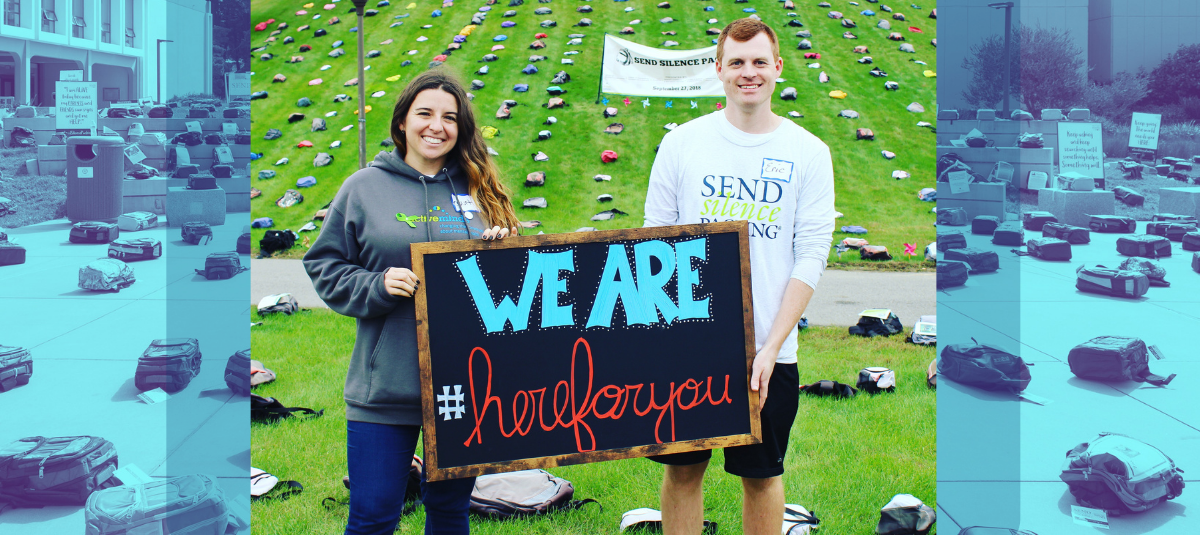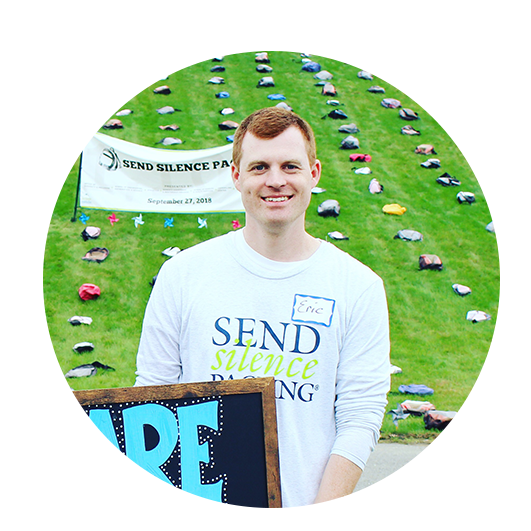Content Warning: This piece contains mentions of suicide.
This week, I embarked on my fourth Send Silence Packing tour with Active Minds. It’s been one of the best jobs I’ve ever had, but it’s also been tough. Through it all, the hard conversations, the long days, and the emotions that come with being on this tour, one thing has remained constant: talking about suicide isn’t easy, but it’s necessary.
When I reflect on the impact our tours have had on communities nationwide, one moment, in particular, stands out: a tour stop two years ago at Kenyon College in Gambier, Ohio. After a long day of conversations about campus climate, inconsistencies within the campus counseling center, and a fellow student who sadly died by suicide, emotions were in flux, and our touring staff questioned if we had even made a positive impact on this difficult day.
But, as we were loading up the backpacks on the truck, we were approached by one last student. We were initially confused by her hesitation to speak, but quickly learned she was hard of hearing. She tried using sign language to relay her message to us, but when that didn’t work, she pulled out her phone and began typing. After a brief moment, she showed us her message, which simply read, “Thank you for being here :).”
This is where the phrase, “Even if it only helps one person, it was worth it,” truly came to life, and also proved that sometimes the loudest voice in the room…isn’t even a voice at all.
This story at Kenyon College, while unique, is not an isolated one. One of the best parts of being on the road for months at a time, visiting students and community members nationwide, is the connection you form at each stop. We may only be there for a day, but it is clear when we leave that our impact will remain even after the truck pulls away.
So today, on World Suicide Prevention Day, I’d love to leave with you three lessons I’ve learned as a Send Silence Packing Tour Coordinator, to help you change the conversation around mental health and suicide in your community.
Words matter.
Offering help to someone you know who’s struggling isn’t always easy. You may feel unqualified, or apprehensive to talk about something as sensitive as mental health. But your words, and your willingness to reach out, mean everything. Oftentimes, the best thing you can do for someone is to just be there. Offer any affirmations, tips, or encouragements you may have, and then, simply listen. Sometimes, having a friendly face to confide in can make all the difference.
Show up.
Being a part of destigmatizing mental health on campus doesn’t have to be complicated – it doesn’t always need to be a big display or costly event. It can be as easy as tabling with mental health resources, chalking about crisis lines and other ways to get help, or just being known in your community as someone who will lend support without judgment. By showing that you’re someone who can be trusted to support those in need of a listening ear, you could be making a difference you don’t even realize.
Keep having hard conversations.
One of the most difficult parts of suicide prevention is being willing to have difficult conversations with people you care about. It can feel scary to ask someone you love if they’re struggling; they may react negatively, or even become angry. However, these conversations can be life-saving. One resource to help you navigate these tough conversations is V-A-R, which explains how to be there for someone in a moment of need. I encourage you to take some time to think about how you can be prepared for hard conversations and remember: you don’t need to be an expert, you just need to be willing to listen.
We hope you will join us in our efforts to help “Send Silence Packing” this semester, and our team cannot wait to see you again in person. Remember this month, and always, The World Needs You Here.
Be kind, be patient, and be well.




